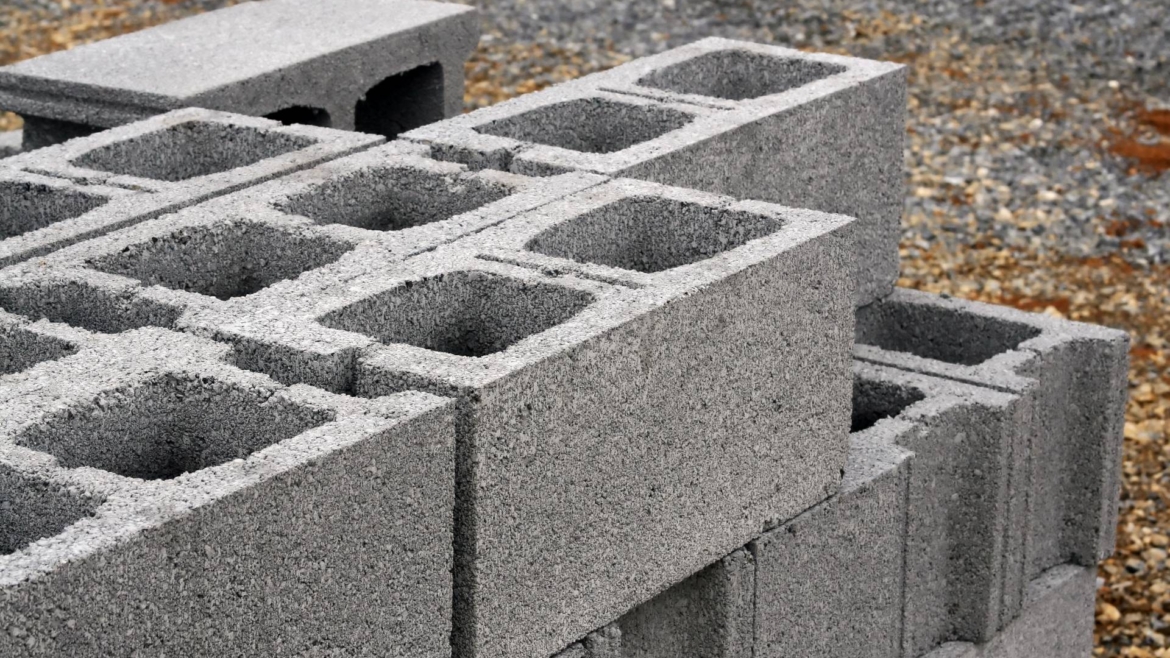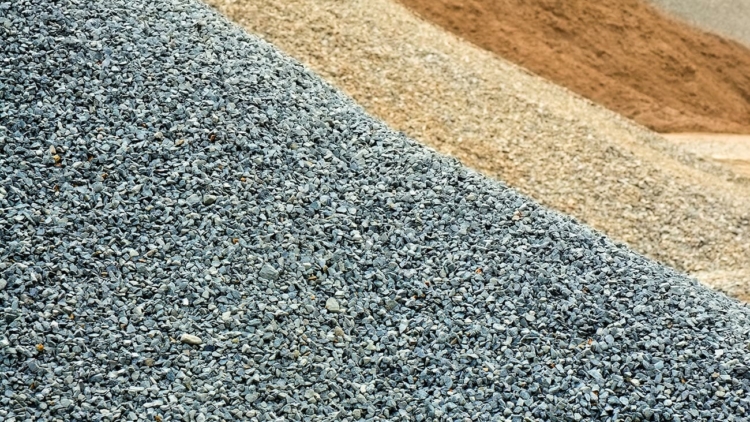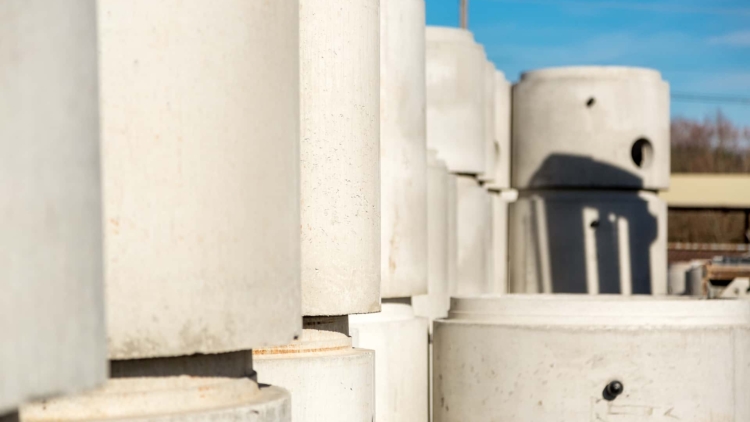A concrete block is primarily used as a building material in the construction of walls. Concrete blocks are typically classified into a category by their density or unit weight.
ADVANTAGES OF CONCRETE BLOCKS
- Concrete blocks are a versatile masonry material which can be used in a wide variety of applications.
- These blocks are produced by our state-of-the-art machinery which allow homeowners and contractors to purchase them immediately and have them delivered or picked up ready for installation.
- Concrete blocks are an inexpensive building material which can save homeowners thousands in expenses i.e. it uses less cement and reduces construction timelines thus cutting on the costs of labour.
- They are a great alternative to natural stone blocks and bricks.
- These blocks are available in many different sizes and designs
TYPES OF CONCRETE BLOCKS
| TYPE | SIZE | WEIGHT | PACKING | COMPRESSIVE STRENGTH | |
| 1 | Block 9×9 | 390mmx190mmx190mm | 25kg | Per piece | Load Bearing 5.6N/mm2 – 7N/mm2 Non -Load Bearing 2.8N/mm2 – 3.5N/mm2 |
| 2 | Block 6×9 | 390mmx140mmx190mm | 20kg | Per piece | |
| 3 | Block 4×9 | 390mmx90mmx190mm | 13kg | Per piece |
INSTALLATION
This type of block material is generally installed with a mortar. Before installation begins a solid foundation should be set to a depth according to the style and type of installation. As each course of concrete block is laid cement-based mortar should be smoothened to the concrete block as it is applied. The mortar works by bonding each concrete block together and ensuring the structure is stable and well established as a singular unit. Mortar can be applied with a trowel.
APPLICATIONS
Concrete blocks are versatile; they can be used for many different types of applications whether the application is load bearing, structural or decorative.
Here is a list of common concrete block applications:
- Retaining Walls
- Siding
- Building Homes
- Commercial Properties
- Steps
- Landscaping Garden Beds
- Curbing and Edging
- Solid blocks



